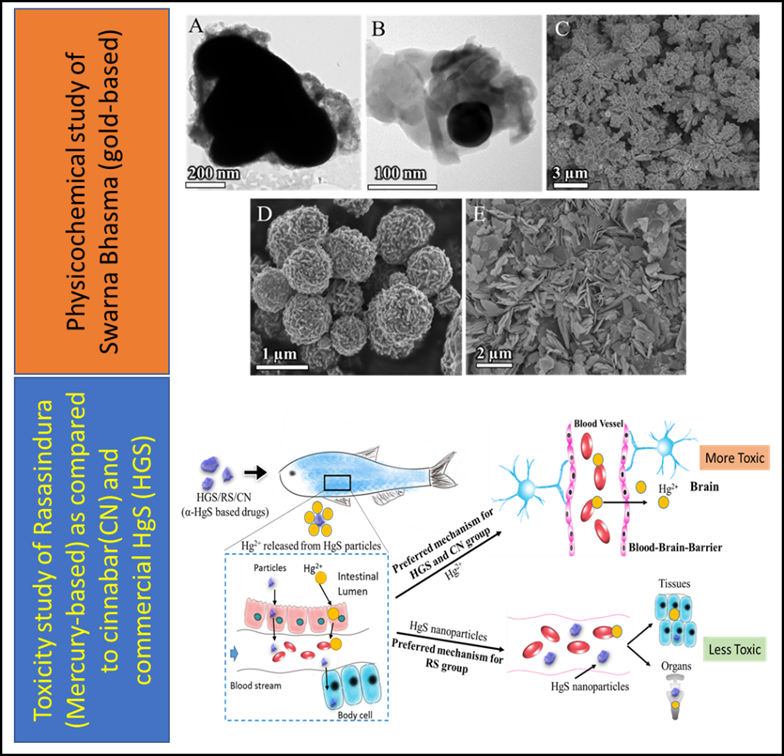102 Silicate Lab, IIT Bombay,
Powai, Mumbai – 400076

Education:
Ph.D. (Chemical Engineering), Indian Institute of Technology Bombay, India (Pursuing)
M.Tech. (Chemical Engineering), National Institute of Technology Rourkela, India (2015)
B.Tech. (Chemical Technology), Rajabazar Science College, University of Calcutta, Kolkata, India (2010)
B.Sc (Chemistry), Bidhannagar Govt College, University of Calcutta, Kolkata, India (2007)
ORCID iD: orcid.org/0000-0001-9209-6377
Thesis research topic: Physicochemical characterization of metal-based Ayurvedic nanomedicine (Swarna Bhasma and Rasasindura), its toxicity, and efficacy studies in the zebrafish model. Behavioral and LC-MS/MS-based proteomics studies were focused on carrying out the toxicity and efficacy study of Ayurvedic medicine.
Research Summary:
Ayurvedic Bhasma medicine contains nanoparticles. These medicines are used to treat several diseases, such as tuberculosis, fever, arthritis, jaundice, and diabetes mellitus. These medicines are reported as an anti-oxidant and immune booster, which makes its applications in numerous health issues. Although, modern scientific investigation is required to understand the mechanism of drug actions. The aim of my research is to find out the biological effect of these medicines in the zebrafish model. As these Bhasma medicines are produced from metals (sometimes heavy metals), a toxicological investigation has been carried out. Secondly, the efficacy study has also been carried out. The broad research interest is to dig out the mechanistic pathways of drug actions of these Ayurvedic medicines. In my research, I established an inhouse zebrafish facility which can accommodate 300 fish at a time. An automated behavioral tracking system was developed with the help of MATLAB code to quantify fish behavior. As behavior is the manifestation of neurological changes, it can be useful to screen a number of drugs. Additionally, the biochemical parameters such as glutathione, superoxide dismutase, reactive oxygen species, and metabolomics are analyzed to examine the possible toxicological/efficacy effect of drugs. Ultimately, the LCMS based shotgun proteomics study is used to find out the biological or cellular pathways of drug actions. The most important of my research is to find out the possible link between the biological/behavioral changes and the physicochemical properties of nano Ayurvedic drugs.
Keywords: Ayurveda, Bhasma; Gold nanoparticles; Mercury-based nanomedicine; Physicochemical characterization; Quality assessment; Toxicokinetic, and Pharmacokinetics; Zebrafish, Behavioural model; Neurotoxicity; In-house Zebrafish facility; Matlab code; Biochemical analysis; cellular toxicity; Neurotransmitter; Metabolomics, and Proteomics
Graphical representation of research work:
